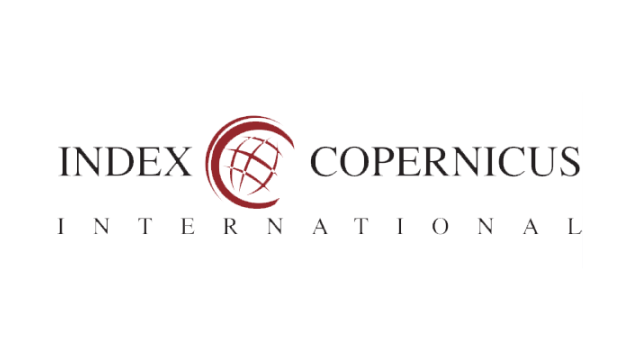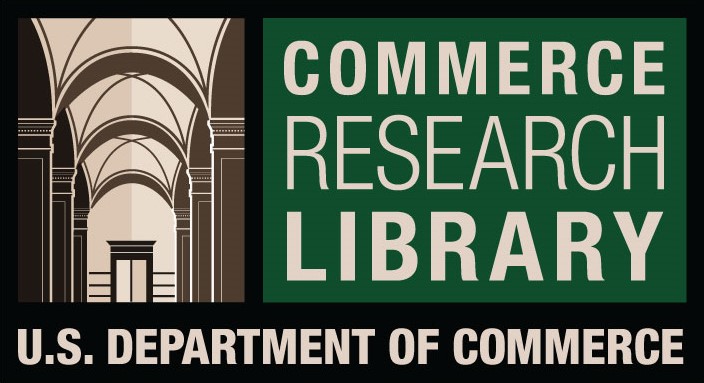ARE THE ASSESSMENT CRITERIA AND THE ROLE OF EDUCATIONAL STAKEHOLDERS ABLE TO MAKE OUTSTANDING TEACHER?
DOI:
https://doi.org/10.61841/w2nyax16Keywords:
Assessment, Educational Stakeholders,, Outstanding TeacherAbstract
The research aims to determine the assessment criteria and the role of education stakeholders in supporting the achievement of elementary school teachers' achievement programs Using a multi- site approach and survey with research respondents consisting of teachers, principals, supervisors, Teacher Working Groups and (KKG) education offices that receive teacher championship performed in 2017 and 2018 in SDN 03 Menteng (DKI Jakarta), SDN Sukasari 5 Tangerang (Banten), SDN Dukuh 3 Salatiga (Central Java), SDN Al-Izhar Pondok Labu (DKI Jakarta), SDN Al-Irsyad Al- Islamiyyah Bekasi (West Java), SDN 12 Dauh Puri (Bali), SDN 023 Pajagalan Bandung (West Java). Data collection was carried out through interviews, questionnaires, documented observation, and discussion group forums. Data analysis techniques using data reduction, data presentation, and verification. The results of the study stated that the primary school teacher's achievement evaluation indicators consisted of portfolios (20%), instructional videos (10%), written tests (20%), scientific papers (20%), presentations of scientific papers (20%), and exemplary (10%). While educational stakeholders play a role by their respective duties and functions.
Downloads
References
1. Adu-gyamfi, E., Kwadwo, P., Edd, A., & Asamoah-boateng, C. (2019). An Examination of Differences between the Mean Indicator Ratings by Different Stakeholders in Distance Education Programme. International Journal of Higher Education, 8(4), 72–78. https://doi.org/10.5430/ijhe.v8n4p72
2. Ahmad Gawdy Prananosa, M.Rusni Eka, Rusi Rusmiati Aliyyah, A. Y. (2018). Pengaruh Gaya Kepemimpinan dan Keterampilan Berkomunikasi Kepada Sekolah Terhadap Kinerja Guru. Journal of Administration and Educational Management, 1, 63–74.
3. Aliyyah, R. A. et all. (2020). Guru berprestasi: penguatan pendidikan di era revolusi industri 4.0, 11(April), 59–64.
4. Aliyyah, R. R. et all. (2020). Outstanding Teachers ’ Competition : Between Strategies and Challenges. Advances in Social Science, Education and Humanities Research, 400(Icream 2019), 153–157.
5. Aliyyah, R R. (2014). Penyelenggaraan Pendidikan Berbasis Karakter Dan Teknologi Dalam Mengatasi Tantangan Globalisasi (Studi Kasus Di Smk Wikrama Kota Bogor) the Education Implementation Based on Character and Technology Toward the Globalisation Challenge (a Case Study Resear. Jurnal Sosial Humaniora, 5(1).
6. Aliyyah, Rusi Rusmiati, Humaira, M. A., Mulyadi, D., & Ulfah, S. W. (2019). Acquiring And Developing Outstanding Teachers Candidate : A Comparative Study From State And Private Elementary School. International Journal of Scientific & Technology Research, 8(11), 1843–1847.
7. Aliyyah, Rusi Rusmiati, Humaira, M. A., Ulfah, S. W., & Mulyadi, D. (2019). Outstanding Teachers : The Steps In Acquiring Them. International Journal for Educational and Vocational Studies, 1, 440–447.
8. Alshumaimeri, Y. A. (2017). Teacher Electronic Portfolio and its Relation to EFL Student Teacher Performance and Attitude. International Journal of Education & Literacy Studies, 5(1). https://doi.org/10.7575/aiac.ijels.v.5n.1p.42
9. Arifin, Z., Nurtanto, M., Warju, W., Rabiman, R., & Kholifah, N. (2020). The TAWOCK Conceptual Model for Content Knowledge for Professional Teaching in Vocational Education. International Journal of Evaluation and Research in Education (IJERE), 9(3), Article 3. https://doi.org/10.11591/ijere.v9i3.20561
10. Baker, M. (2018). Playing , Talking , Co-constructing : Exemplary Teaching for Young Dual Language Learners Across Program Types. Early Childhood Education Journal, 0(0), 0. https://doi.org/10.1007/s10643-018-0903-0
11. Cosner, S. (2018). What Makes a Leadership Preparation Program Exemplary? Journal of Research on Leadership Education, (Mc 147), 1–18. https://doi.org/10.1177/1942775118819661
12. Cowan, J., & Goldhaber, D. (2016). National Board Certification and Teacher Effectiveness: Evidence From Washington State. Journal of Research on Educational Effectiveness, 9(3), 233–258. https://doi.org/10.1080/19345747.2015.1099768
13. Dixon, F. J., & Pilkington, R. (2017). Teaching in Higher Education Poor relations ? Tensions and torment ; a view of excellence in teaching and learning from the Cinderella sector. Teaching in Higher Education ISSN:, 2517(May). https://doi.org/10.1080/13562517.2017.1301912
14. Dori, Y. J., Zohar, A., Carmi, M., Zohar, A., & Carmi, M. (2018). Gender-fair assessment of young gifted students ’ scientific thinking skills. International Journal of Science Education, 0(0), 1–26. https://doi.org/10.1080/09500693.2018.1431419
15. Elliott, K. (2015). Teacher Performance Appraisal : More about Performance or Development ? Australian Journal of Teacher Education, 40(9).
16. Eridafithri. (2015). The Application of Portfolios to Assess Progress in Writing of EFL Students at Secondary Schools in Banda Aceh. Studies In English Language And Education, 2, 1–16.
17. Fantini, A. E. (2018). Teacher Assessment and Evaluation. The TESOL Encyclopedia of English Language Teaching, 1–11. https://doi.org/10.1002/9781118784235.eelt0652
18. Ferenc, J., Cerven, F., Birc, E., & Sevc, A. (2017). Intentionally Flawed Manuscripts as Means for Teaching Students to Critically Evaluate. Biochemistry and Molecular Biology Education Resistance, 1–
9. https://doi.org/10.1002/bmb.21084
19. Frey, B. B., Ellis, J. D., Bulgren, J. A., Hare, J. C., & Ault, M. (2015). Development of a Test of Scientific Argumentation. Electronic Journal of Science Education, 19(4).
20. Gelfer, J., Hara, K. O., Krasch, D., & Nguyen, N. (2015). Teacher portfolios : an effective way to assess teacher performance and enhance learning. Early Child Development and Care, (March 2015), 37–41. https://doi.org/10.1080/03004430.2015.1005614
21. slami, R. E., Sari, I. J., Sjaifuddin, S., Nurtanto, M., Ramli, M., & Siregar, A. (2019). An Assessment of Pre-service Biology Teachers on Student Worksheets Based on Scientific Literacy. Journal of Physics: Conference Series, 1155, 012068. https://doi.org/10.1088/1742-6596/1155/1/012068
22. Kaendler, C., Wiedmann, M., Rummel, N., & Spada, H. (2014). Teacher Competencies for the Implementation of Collaborative Learning in the Classroom : a Framework and Research Review. Educ Psychol Rev. https://doi.org/10.1007/s10648-014-9288-9
23. Kiymet SELVI. (2016). Teachers ’ Competencies Teachers ’ Competencies. Teachers’ Competencies That, VII(January 2010), 167–176. https://doi.org/10.5840/cultura20107133
24. Kruit, P. M., Oostdam, R. J., Berg, E. Van Den, Schuitema, J. A., Kruit, P. M., Oostdam, R. J., … Schuitema, J. A. (2018). Assessing students ’ ability in performing scientific inquiry : instruments for measuring science skills in primary education. Research in Science & Technological Education, 5143, 1–27. https://doi.org/10.1080/02635143.2017.1421530
25. Loeb, S. (2019). Effective Schools : Teacher Hiring, Assigment, Development dan Retention. Association For Education Finance and Plolicy, 7(3).
26. Luckin, R., Clark, W., Avramides, K., Hunter, J., Luckin, R., Clark, W., … Oliver, M. (2016). Using teacher inquiry to support technology- enhanced formative assessment : a review of the literature to inform a new method assessment : a review of the literature to inform a new method. Interactive Learning Environments ISSN:, 4820(January). https://doi.org/10.1080/10494820.2015.1121152
27. Menteri Pendidikan Nasional. (2007). Standar Kualifikasi Akademik dan Kompetensi Guru (pp. 1–32). Kementerian Pendidikan Nasional Republik Indonesia.
28. Miles, M. B., Huberman, M. A., & Saldaña, J. (2014). Qualitative Data Analysis. A Methods Sourcebook. Zeitschrift Für Personalforschung, 28(4), 485–487. https://doi.org/10.1136/ebnurs.2011.100352
29. Ministry of Education and Culture. (2019). Guidelines Selection Of Basic Education Teachers Edicated National Levels. Jakarta.
30. Naganuma, S. (2017). An assessment of civic scientific literacy in Japan : development of a more authentic assessment task and scoring rubric. International Journal of Science Education, 8455(May), 1–
23. https://doi.org/10.1080/21548455.2017.1323131
31. Nurtanto, M., Sofyan, H., Fawaid, M., & Rabiman, R. (2019). Problem-Based Learning (PBL) in Industry 4.0: Improving Learning Quality through Character-Based Literacy Learning and Life Career Skill (LL-LCS). Universal Journal of Educational Research, 7(11), 2487–2494. https://doi.org/10.13189/ujer.2019.071128
32. Nurtanto, M., Widjanarko, D., Sofyan, H., Rabiman, & Triyono, M. B. (2019). Learning By Creating: Transforming Automotive Electrical Textual Material Into Visual Animation As A Creative Learning Products (CLP). International Journal of Scientific & Technology Research, 8(10), 1634–1642. http://www.ijstr.org/paper-references.php?ref=IJSTR-1019-22932
33. Nurtanto, M., Pardjono, P., Widarto -, & Ramdani̇, S. D. (2020). The Effect of STEM-EDP in Professional Learning on Automotive Engineering Competence in Vocational High School. Journal for the Education of Gifted Young Scientists, 8(2), 633–656. https://dergipark.org.tr/en/pub/jegys/645047
34. Rabiman, R., Nurtanto, M., & Kholifah, N. (2020). Design And Development E-Learning System By Learning Management System (LMS) In Vocational Education. 9(01), 6.
35. Rusi Rusmiati Aliyyah, Widyasari, Didi Mulyadi, Sri Wahyuni Ulfah, S. R. (2019). Guru Berprestasi Sumber Daya Manusia Pengembang Mutu Pendidikan Indonesia. Alignment: Journal of Administration and Educational Management, 2, 157–165.
36. Sengupta, M. A. (2016). Teaching Excellence and Innovative Practices : A Case Study of National Awardee Teachers of India. Journal of Education and Practice, 7(1), 48–53.
37. Sensuse, D. I., & Purwandari, B. (2018). Defining e-Portofolio Factor for Competency Certification using Fuzzy Delphi Method. TOJET: The Turkish Online Journal of Educational Technology, 17(2), 25–33.
38. Sorensen, N. (2016). Professional Development in Education Improvisation and teacher expertise : implications for the professional development of outstanding teachers professional development of outstanding teachers. Professional Development in Education, 5257(March). https://doi.org/10.1080/19415257.2015.1127854
39. Waswas, D., & Gasaymeh, A. M. (2017). The Role of School Principals in the Governorate of Ma ’ an in Promoting Intellectual Security among Students. Journal of Education and Learning, 6(1), 193–206. https://doi.org/10.5539/jel.v6n1p193
Downloads
Published
Issue
Section
License

This work is licensed under a Creative Commons Attribution 4.0 International License.
You are free to:
- Share — copy and redistribute the material in any medium or format for any purpose, even commercially.
- Adapt — remix, transform, and build upon the material for any purpose, even commercially.
- The licensor cannot revoke these freedoms as long as you follow the license terms.
Under the following terms:
- Attribution — You must give appropriate credit , provide a link to the license, and indicate if changes were made . You may do so in any reasonable manner, but not in any way that suggests the licensor endorses you or your use.
- No additional restrictions — You may not apply legal terms or technological measures that legally restrict others from doing anything the license permits.
Notices:
You do not have to comply with the license for elements of the material in the public domain or where your use is permitted by an applicable exception or limitation .
No warranties are given. The license may not give you all of the permissions necessary for your intended use. For example, other rights such as publicity, privacy, or moral rights may limit how you use the material.









